
Anglo-Catholicism comprises beliefs and practices that emphasise the catholic heritage and identity of the various Anglican churches.
The Continuing Anglican movement, also known as the Anglican Continuum, encompasses a number of Christian churches, principally based in North America, that have an Anglican identity and tradition but are not part of the Anglican Communion.

John Henry Hobart was the third Episcopal bishop of New York (1816–1830). He vigorously promoted the extension of the Episcopal Church in upstate New York, as well as founded both the General Theological Seminary in New York City and Geneva College in Geneva in the Finger Lakes area. He was the beloved pastor of Elizabeth Seton before her conversion to Catholicism.
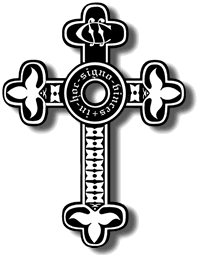
The Society of the Holy Cross is an international Anglo-Catholic society of male priests with members in the Anglican Communion and the Continuing Anglican movement, who live under a common rule of life that informs their priestly ministry and charism.

The Reformed Episcopal Church (REC) is an Anglican Church. It was founded in 1873 in New York City by George David Cummins, a former bishop of the Protestant Episcopal Church.

The Episcopal Diocese of Georgia, USA is one of 20 dioceses that comprise Province IV of the US Episcopal Church, and is a diocese within the worldwide Anglican Communion. The current bishop is Frank S. Logue, who succeeded Scott Anson Benhase on May 30, 2020, when he was consecrated 11th bishop of Georgia at a service held in Christ Church in Savannah, Georgia.

The Episcopal Diocese of Pennsylvania is a diocese of the Episcopal Church in the United States of America encompassing the counties of Philadelphia, Montgomery, Bucks, Chester and Delaware in the state of Pennsylvania.
The September 14–16, 1977 Congress of St. Louis was an international gathering of nearly 2,000 Anglicans in St. Louis, Missouri, united in their rejection of theological changes introduced by the Anglican Church of Canada and by the Episcopal Church in the United States of America in its General Convention of 1976. Anglicans who attended this congress felt that these changes amounted to foundational alterations in the American and Canadian provinces of the Anglican Communion and meant that they had "departed from Christ's One, Holy, Catholic and Apostolic Church." Theological liberalism, financial support for political action groups, participation in the Consultation on Church Union (COCU), revisions to the Book of Common Prayer, and the ordination of women priests were not the only reasons for the split, but they were seen by these churches as evidence of the mainline church's departure from Anglican orthodoxy. The idea for a congress originated with the Reverend Canon Albert J. duBois in 1973 in preparation for the Louisville General Convention of the Episcopal Church. Canon duBois and the group called "Anglicans United" toured parishes in advance of the Congress to garner support. This congress was sponsored by the Fellowship of Concerned Churchmen, an organization founded in 1973 as a coordinating agent for laypeople and clergy concerned about the breakdown of faith and order within the Episcopal Church and the Anglican Church of Canada.
In the United States, the history of the Episcopal Church has its origins in the Church of England, a church which stresses its continuity with the ancient Western church and claims to maintain apostolic succession. Its close links to the Crown led to its reorganization on an independent basis in the 1780s. In the nineteenth and early twentieth centuries, it was characterized sociologically by a disproportionately large number of high status Americans as well as English immigrants; for example, more than a quarter of all presidents of the United States have been Episcopalians. Although it was not among the leading participants of the abolitionist movement in the early 19th century, by the early 20th century its social engagement had increased to the point that it was an important participant in the Social Gospel movement, though it never provided much support for the Prohibitionist movement. Like other mainline churches in the United States, its membership decreased from the 1960s. This was also a period in which the church took a more open attitude on the role of women and toward homosexuality, while engaging in liturgical revision parallel to that of the Roman Catholic Church in the post Vatican II era.
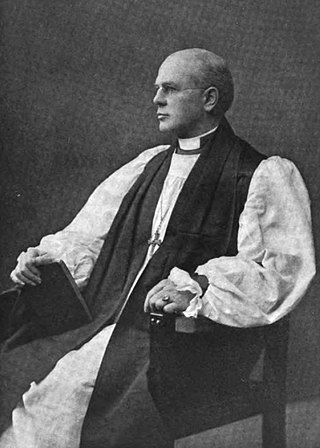
Frederick Joseph Kinsman was an American Roman Catholic church historian who had formerly been a bishop of the Protestant Episcopal Church. From 1908 to 1919 he was Episcopal Bishop of Delaware.
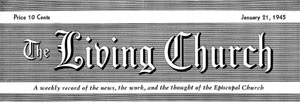
The Living Church is a magazine based in Milwaukee, Wisconsin, providing commentary and news on the Episcopal Church and the wider Anglican Communion. It is the flagship publication of The Living Church Foundation. In continuous publication since 1878, it has generally been identified with the Anglo-Catholic wing of Anglicanism, and has been cited by national newspapers as a representative of that party. It absorbed a number of earlier Anglo-Catholic publications, including The American Churchman, Catholic Champion (1901), and The Angelus (1904). Theologically and culturally, it tends to have a moderate-to-conservative slant.
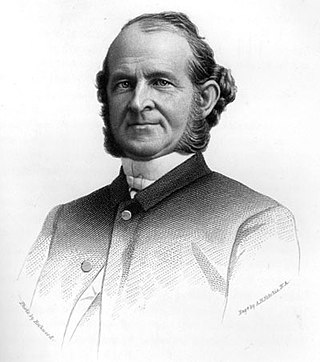
George David Cummins was an American Anglican Bishop and founder of the Reformed Episcopal Church.

Anglican interest in ecumenical dialogue can be traced back to the time of the Reformation and dialogues with both Orthodox and Lutheran churches in the sixteenth century. In the nineteenth century, with the rise of the Oxford Movement, there arose greater concern for reunion of the churches of "Catholic confession". This desire to work towards full communion with other denominations led to the development of the Chicago-Lambeth Quadrilateral, approved by the Third Lambeth Conference of 1888. The four points were stipulated as the basis for church unity, "a basis on which approach may be by God's blessing made towards Home Reunion":

The Episcopal Church (TEC), based in the United States with additional dioceses elsewhere, is a member church of the worldwide Anglican Communion. It is a mainline Protestant denomination and is divided into nine provinces. The presiding bishop of the Episcopal Church is Michael Bruce Curry, the first African American bishop to serve in that position.
Episcopal Church may refer to various churches in the Anglican, Methodist and Open Episcopal traditions.
Peter Francis Watterson was an American Catholic priest who had formerly been a bishop of the Continuing Anglican movement.
James Thayer Addison was a priest in the Episcopal Church. His career included serving as an Episcopal Church missionary, as a professor in the Episcopal Theological School, as a military chaplain during World War I, and as a prolific writer.

Evangelical Anglicanism or evangelical Episcopalianism is a tradition or church party within Anglicanism that shares affinity with broader evangelicalism. Evangelical Anglicans share with other evangelicals the attributes of "conversionism, activism, biblicism and crucicentrism" identified by historian David Bebbington as central to evangelical identity. The emergence of evangelical churchmanship can be traced back to the First Great Awakening in America and the Evangelical Revival in Britain in the 18th century. In the 20th century, prominent figures have included John Stott and J. I. Packer.
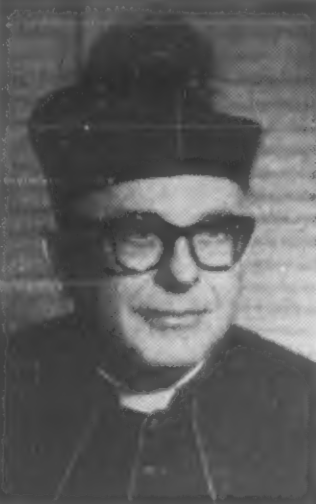
Albert Julius duBois was an influential American Anglo-Catholic priest during the 20th century.
Albert Ernest Frost was an English Anglican priest who was persecuted for Anglo-Catholic practices in Australia. He subsequently returned to England and became an Anglican Benedictine and a noted spiritual writer.












